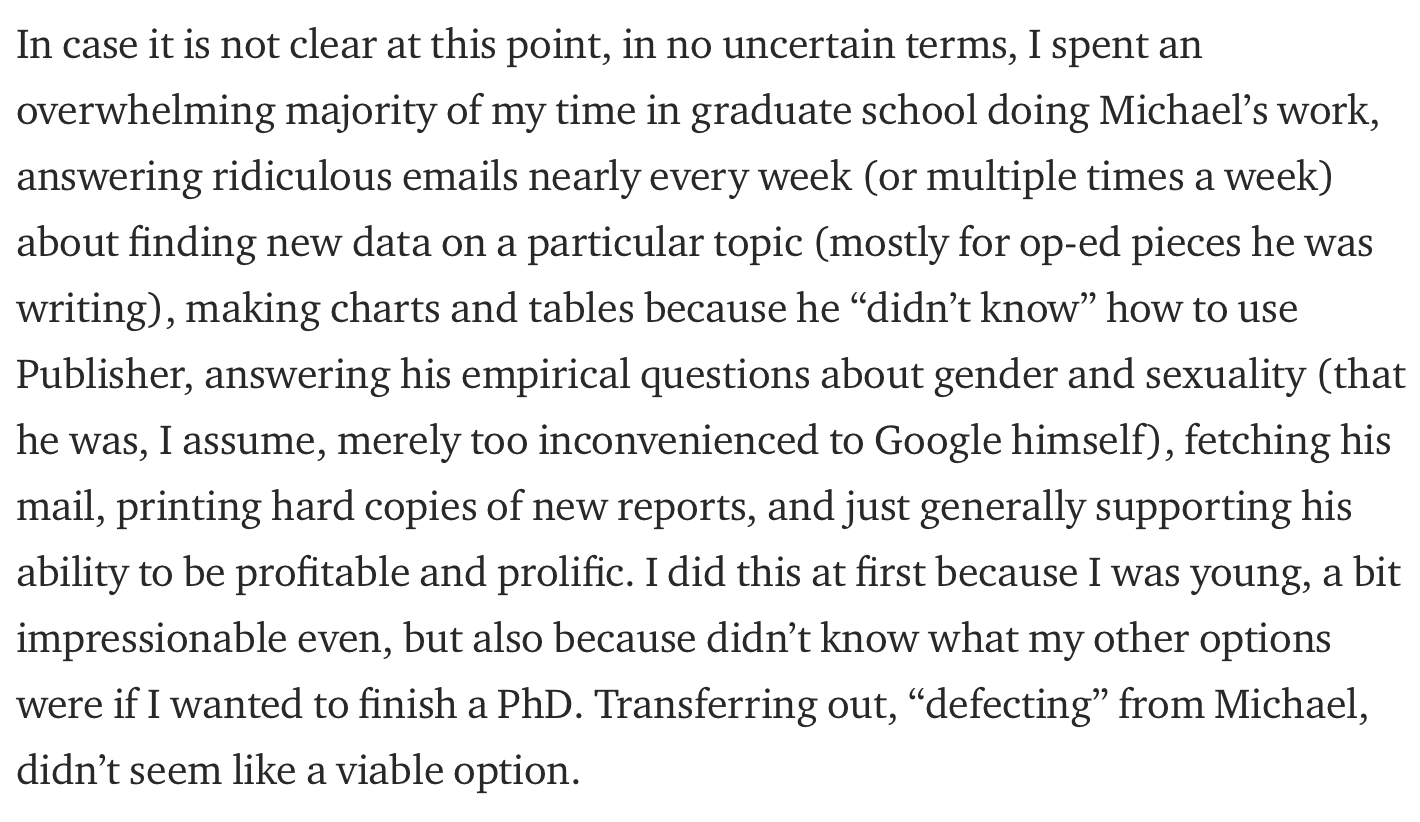You have /5 articles left.
Sign up for a free account or log in.
Michael Kimmel, Distinguished Professor of Sociology and Gender Studies at the State University of New York at Stony Brook, said last week that he’s deferring his acceptance of a major sociology award for six months, over what he called “rumors” about his professional conduct. And while Kimmel’s terminology was criticized as dismissive of his accusers, the harassment allegations against him circulating online and off were then anonymous.
But on Thursday one of Kimmel’s former Stony Brook graduate students put their (the student's preferred pronoun) name behind a detailed account of what they called his explicit sexual talk, homophobia, transphobia and general “lack of respect” for anyone but cisgender heterosexual men. In an essay published in Medium, Bethany M. Coston, now an assistant professor of women’s, gender and sexuality studies at Virginia Commonwealth University, said now was the time to share their experiences.
To Coston, now means three years removed from working with Kimmel and the fear of professional consequences that could come with speaking out against him. It means showing solidarity with his accusers, distaste for his response thus far and sending a message to the American Sociological Association. The association was to give Kimmel a career award for promoting the study of women in sociology at its annual gathering this weekend in Philadelphia. But Kimmel said last week that he’d asked ASA to wait six months, to look into any claims against him first.
Timing aside, Coston said that “what makes this case particularly toxic is that Michael has spent the better part of the last three decades becoming famous for telling other men how to be better, including contributing to field-specific knowledge on intimate partner violence and community-wide conversations on #MeToo outside of and even in the workplace.”
Indeed, Kimmel is an internationally known expert on masculinity, and his website notes that he’s been referred to as “the world’s most prominent male feminist.”
Specifically Coston accuses Kimmel of discussing his son’s sex life in and out of class on multiple occasions, saying that porn isn’t bad (especially the “woman on woman stuff”) and admitting to a graduate student that he couldn’t help but stare at an undergraduate with large breasts in a low-cut shirt.
He’s also alleged to have told “beautiful” (his word) graduate students they’d have to work that much harder to get ahead professionally, in what Coston described as “benevolent” sexism and an outdated feminism.
In one example that Coston said represents Kimmel’s larger antipathy toward LGBTQ and nonbinary people, Kimmel allegedly expressed disbelief that Coston was dating a woman, rather than a man, saying he guessed the woman was “more caring and nurturing, I’d bet.” Coston alleges that this kind of stereotypical thinking about gender roles bled into Kimmel’s sociology, in that he resisted new research suggesting that lesbians have more sex than was previously thought when a broader definition of sex is observed.
Kimmel is also alleged to have resisted using students’ preferred gender pronouns, of using a trans scholar’s birth name at length (otherwise known as “deadnaming”) and of showing general disregard for trans issues. “TUGs are the new LUGs,” he’s alleged to have declared, meaning “trans until graduation” and “lesbian until graduation,” respectively.
Coston also accuses Kimmel of favoritism toward straight male graduate students, saying he gave them less teaching and other work and paid men to work during summers, but not women. (This parallels what many female professors say happens in faculty work, with regard to gendered expectations for service.) These men also were sent to conferences and saw desirable internships and paid research jobs arranged for them, Coston said, unlike women and nonbinary students.
Kimmel also chronically exploited graduate students’ work in what he called the “informal economy,” Coston wrote.

Source: Medium
Put together, Coston wrote, Kimmel's behavior amounts to hostile-environment harassment.
Kimmel did not immediately respond to a request for comment. Last week, he shared with Inside Higher Ed a letter he’d shared with the sociology association about his award, which included the “rumors” comment.
"I have been informed that there are rumors circulating about my professional conduct that suggest I have behaved unethically," Kimmel wrote. "I take such concerns seriously, and want to validate the voices of those who are making such claims. I want to hear those charges, hear those voices, and make amends to those who believe I have injured them."
Coston's essay asks what the sociological association will do to support those who come forward and, "Who will you support and believe?" Nancy Kidd, the association's executive director, said via email Thursday that the group takes “allegations of harassment very seriously and both the Committee on Professional Ethics and the ASA Council have harassment as a primary agenda item for their respective meetings in Philadelphia.” No word on Kimmel specifically.
Stony Brook, meanwhile, said that it’s unable to comment on personnel matters but that it has “policies and procedures in place to fully investigate claims that are brought to our attention.” Kimmel’s department referred questions back to the university.
Coston did not immediately respond to an interview request.





